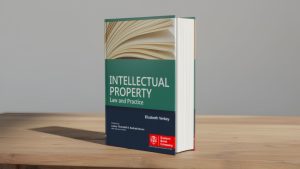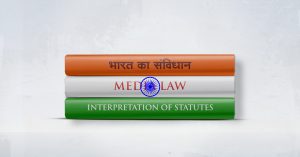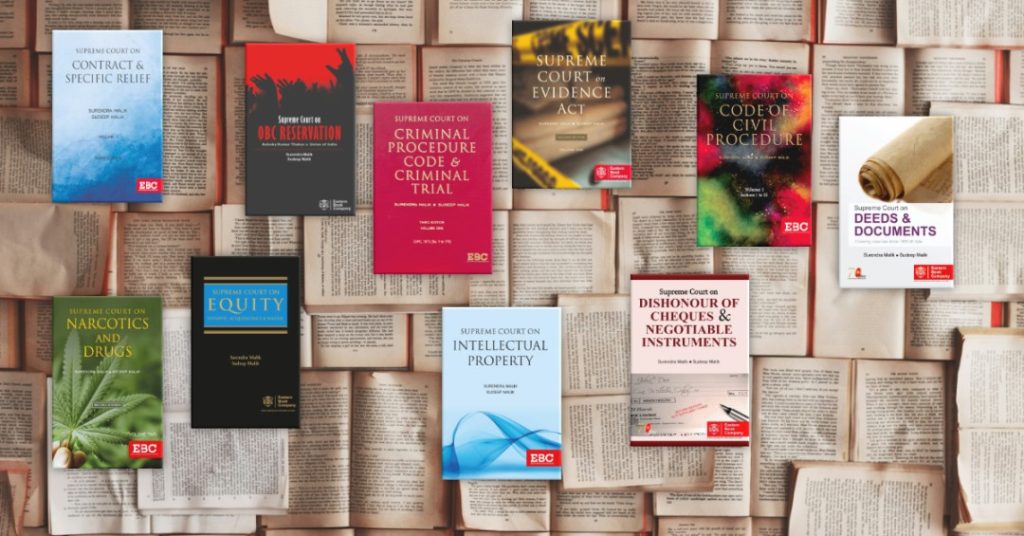
Picture this: You’re deep into case prep, the clock is ticking, and you need that one Supreme Court precedent to pull it all together. Now imagine reaching for a digest that lays it out, clearly, quickly, and convincingly. That’s the kind of edge a strong law shelf gives you. Here are the Top 10 Supreme Court Digests that every sharp legal mind should have within reach.
1. Supreme Court on Criminal Procedure Code and Criminal Trial
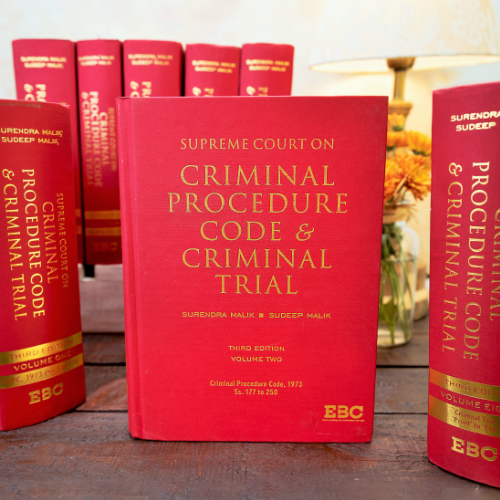
This eight-volume Digest offers a comprehensive compilation of Supreme Court case law on the Criminal Procedure Code and Criminal Trials, covering decisions from 1950 to the present. The content is organized in a section-wise format under the CrPC, 1973, making it easy to locate re
levant rulings. For better clarity, related sections such as 125–128 (maintenance), 155–159 (police investigations), and 161–162 (witness examination) are grouped together under common synopses. Heavily cited provisions like Sections 154, 164, 167, 197, 378, and 482 feature detailed synopses for quick reference. Additionally, the Digest includes case law from earlier CrPC versions (1861, 1872, 1882, 1898) and provides a topic-wise summary under “Criminal Trial” for rulings that don’t align neatly with specific sections, offering a more intuitive and accessible approach to legal research.
2. Supreme Court on Evidence Act (In 5 Volumes) (1950 to 2023)
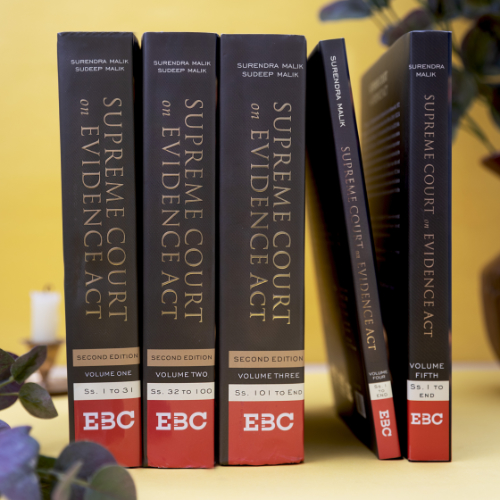
This compendium includes all Supreme Court rulings on the Evidence Act, 1872, from 1950 to the present, along with the full text of the Act. Many judgments involve the Act’s provisions indirectly, and the SCC Editors have carefully extracted every relevant ruling, making this the most complete and authoritative source of Evidence Act case law, binding across India under Article 141. Update Volume 4 covers case law from 2014 to 2018, linking related rulings on the Criminal Procedure Code and Penal Code for better context. Update Volume 5 continues from 2018 to 2023, maintaining the same thorough approach and ensuring the collection remains the most comprehensive guide to Supreme Court rulings on the Evidence Act.
3. Supreme Court on Code of Civil Procedure (1950 to 2018) (in 3 Volumes)
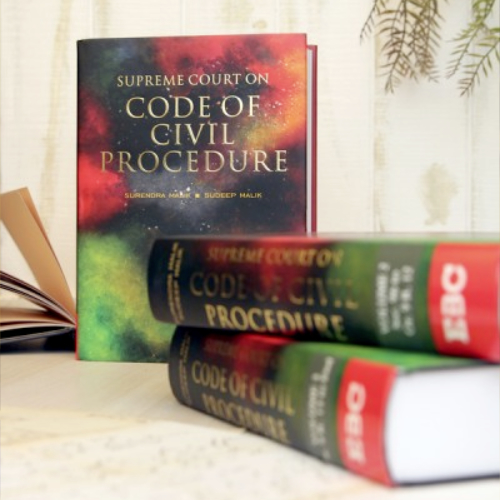
This three-volume digest provides a comprehensive and analytical coverage of Supreme Court case law on the Civil Procedure Code (CPC) from 1950 to 2018. As the Supreme Court’s rulings now govern almost every key aspect of civil litigation—often reorganizing High Court law—this digest serves as an essential, exhaustive resource. Volume 1 covers Sections 1 to 95, Volume 2 covers Sections 96 to Order 9 Rule 12, and Volume 3 covers Order 9 Rule 13 to the end. It acts as a complete standalone reference while also complementing leading CPC books, offering synopses, an extensive table of cases for quick reference, and valuable editorial notes and cross-citations for deeper insights.
4. Supreme Court on Contract & Specific Relief (In 5 Volumes)

This comprehensive five-volume Digest covers Supreme Court case law on Contract and Specific Relief from 1950 to the present. It includes the full text of key statutes like the Contract Act, 1872; Sale of Goods Act, 1930; Specific Relief Act, 1877; and Specific Relief Act, 1963, making it a complete resource. Now in its third edition since its first release in 2008, the Digest uses a Topic-based Life Cycle of Contract approach. This means the entire case law is organized around major contract stages—from formation, defects, and performance to termination and remedies—offering a clear path through complex legal issues. Case law is also digested under relevant statutes, with a well-designed cross-reference system and synopses to simplify research. Additional features include cross-citations, annotations, court details, and editorial notes.
5. Supreme Court on Narcotics and Drugs with the NDPS Act, Drugs and Cosmetics Act, and NDPS Rules (1950 to 2018) (in 2 Volumes)

Volume 1 covers Supreme Court case law on Narcotics and Drugs from 1950 to 2015. It is the first digest to combine the twin subjects of the NDPS Act and the Drugs and Cosmetics Act in one volume, reflecting the overlap of medicines regulated under both laws. .Volume 2 updates the digest with the latest amendments and case law from 2015 to 2018. It includes the complete text of the NDPS Act, 1985, the Drugs and Cosmetics Act, 1940, and the NDPS Rules, 1985, both at the beginning for overall context and section-wise alongside relevant rulings. The digest follows the trusted SCC index system, organizing rulings under both topic and statutory headings. A detailed cross-reference system with synopses supports systematic research. Additional features include a Table of Cases Digested, annotations, editorial notes, Coram details, and docket numbers.
6. Supreme Court on Equity Estoppel Acquiescence and Waiver
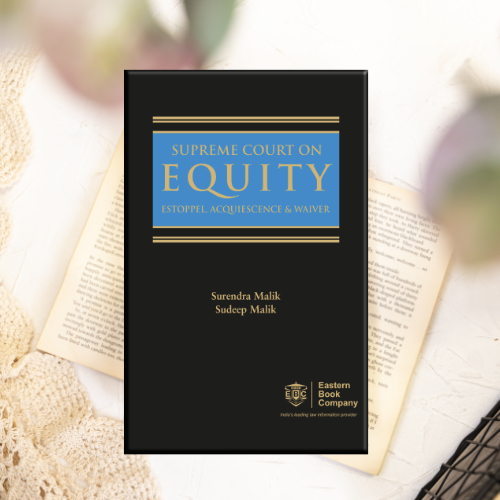
The study of Equity in India is both fascinating and complex because much of it is codified in statutes like the Trusts Act, 1882, Transfer of Property Act, 1882, and Specific Relief Acts of 1877 and 1963, alongside significant judge-made law. This compendium selectively gathers Supreme Court case law on general principles of Equity from 1950 to 2015. The SCC Editors have carefully extracted relevant rulings from diverse cases, covering topics such as equitable interests, estates and trusts, injunctions, specific performance, equitable relief, contracts, and property matters. Since Estoppel, Waiver, and Acquiescence are rooted in Equity, they are included here as well. Additional features like a Table of Cases Digested, decision dates, and Coram details enhance research. This comprehensive work stands as an authoritative source on Equity by the highest court, ideally complemented by the Supreme Court on Specific Relief Act.
7. Supreme Court on Intellectual Property
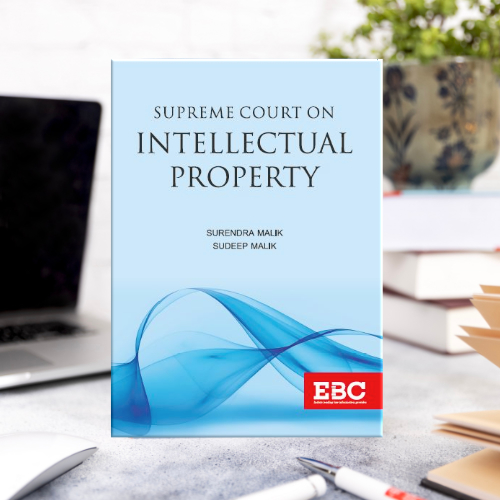
This one-volume Digest on Intellectual Property compiles Supreme Court case law from 1950 to today, paired with key statutory texts like the Copyright Act and Patent Act for a complete view. Using the trusted SCC index system, it covers major topics such as Copyright, Patents, Trademarks, Geographical Indications, and more. Cases are organized by topic and statute, linked through cross-references and synopses for easy research. Features include a Table of Cases, annotations, and editorial notes. This concise yet comprehensive Digest is an essential tool for courts and legal professionals. This analytical and thorough Digest is an invaluable resource for courts, legal professionals, and the Bench alike.
8. Supreme Court on Dishonour of Cheques And Negotiable Instruments (1950-2016) (in 2 Volumes)
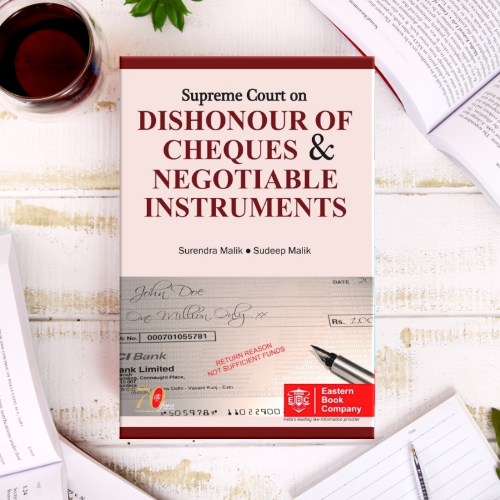
This two-volume Digest offers a comprehensive record of Supreme Court rulings on the Negotiable Instruments Act, 1881, spanning over six decades (1950–2016). Volume 1, released in 2013, covers case law from 1950 to 2013. Volume 2 updates this with rulings from 2013 to 2016, including the full text of the amended NI Act and key decisions like Bridgestone India (P) Ltd. v. Inderpal Singh, which upheld the retrospective applicability of Sections 142(2) and 142-A. Designed for quick and efficient research, the Digest features a Table of Cases Digested, annotations, editorial notes, cross-references, and more. This authoritative work is essential for the judiciary, legal professionals, banking and financial institutions, and the commercial sector, as well as anyone studying negotiable instruments in depth.
9. Supreme Court on Deeds and Documents
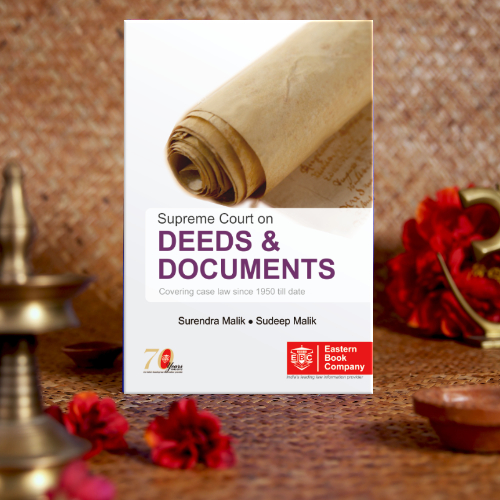
This unique compendium offers an exhaustive analysis of Supreme Court rulings on “Deeds and Documents” from 1950 to 2019, focusing particularly on Sections 61 to 100 of the Evidence Act, 1872. Since most deeds—such as contracts, wills, arbitration agreements, conveyance deeds, labour settlements, or court documents—are governed by different legal frameworks, there is no single, defined body of law for deeds and documents. This Digest fills that gap with a selective and structured collection of landmark rulings. Drawing from principles of statutory interpretation, it classifies case law into categories like Basic Rules, Subsidiary Rules, Internal Aids, and External Aids for construction and interpretation. For the first time, every legal dimension of this subject is deeply and systematically analysed, making this work an authoritative reference for lawyers, judges, presiding officers, and legal scholars alike.
10. Supreme Court on OBC Reservation

This book covers the landmark Supreme Court judgment in Ashoka Kumar Thakur v. Union of India, which upheld 27% OBC reservation in central educational institutions. It includes the full decision, arguments by counsel, and topic-wise headnotes summarizing each Judge’s reasoning. Enhanced with editorial notes and cross-references, it offers clear insight into the constitutional issues involved. A valuable resource for legal professionals, educators, policymakers, and students.An essential resource for judges, lawyers, educational administrators, policymakers, academics, and students, this book provides in-depth insight into one of the most significant cases on reservation policy and constitutional interpretation in recent times.











